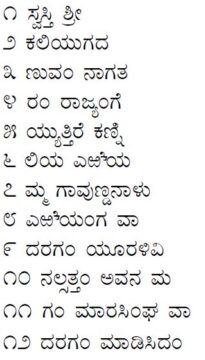Deepa Bhasthi at The Paris Review:
 Anthe (ಅಂತೆ) is one of my favorite words in the Kannada language. Somewhat meaningless by itself, it adds so much nuance and emotion when appended to a sentence that we Kannadigas cannot carry on a conversation without using it. Depending on the context and the speaker’s tone, anthe can convey an expression of surprise or the understanding that gossip is being shared. It could mean “so it happened,” “that’s how it is,” “apparently,” or “it seems.” The latter comes closest to a direct translation, but is a frustratingly simple choice. Anthe will only ever half-heartedly migrate to English. Banu Mushtaq, whose short stories I have been translating recently, and whose “Red Lungi” appears in the Summer 2024 issue of The Paris Review, employs anthe generously. Mushtaq’s characters use anthe when reporting something someone said verbatim or when guessing how something might have happened. In another instance, she uses echo words with anthe, another common characteristic of the Kannada language: one character utters anthe-kanthe to refer to hearsay. There are also a whole lot of ellipses in Mushtaq’s stories … her sentences often trail off … like so … She mixes up her tenses here and there.
Anthe (ಅಂತೆ) is one of my favorite words in the Kannada language. Somewhat meaningless by itself, it adds so much nuance and emotion when appended to a sentence that we Kannadigas cannot carry on a conversation without using it. Depending on the context and the speaker’s tone, anthe can convey an expression of surprise or the understanding that gossip is being shared. It could mean “so it happened,” “that’s how it is,” “apparently,” or “it seems.” The latter comes closest to a direct translation, but is a frustratingly simple choice. Anthe will only ever half-heartedly migrate to English. Banu Mushtaq, whose short stories I have been translating recently, and whose “Red Lungi” appears in the Summer 2024 issue of The Paris Review, employs anthe generously. Mushtaq’s characters use anthe when reporting something someone said verbatim or when guessing how something might have happened. In another instance, she uses echo words with anthe, another common characteristic of the Kannada language: one character utters anthe-kanthe to refer to hearsay. There are also a whole lot of ellipses in Mushtaq’s stories … her sentences often trail off … like so … She mixes up her tenses here and there.
more here.
